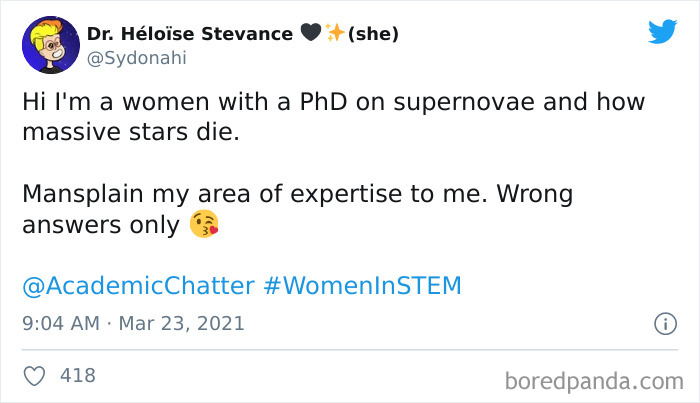With so many women all over the world having to deal with mansplaining on a regular basis, it’s rare to see someone actually asking to have her area of expertise mansplained to her. However, that’s exactly what Dr. Héloïse Stevance did on Twitter, asking others to condescendingly (but jokingly) roast her despite her experience in astrophysics and a PhD in supernovae.
The result is unexpectedly witty, funny, and makes for a light yet riveting read—perfect for your Monday morning while you’re still bleary-eyed, slowly slurping your coffee, and wondering where the weekend ran away to (and what month it is). Have a look through what people jokingly mansplained to Dr. Stevance and remember to upvote the responses that made you smile or laugh. When you’re done, let us know in the comments what area of expertise you’d invite people to -splain to you.
Dr. Stevance from the University of Auckland told me that ever since she's been a kid, she's always been interested in learning how the world works. Especially objects in space which she found to be super cool (and so do we!). "Stars, black holes, galaxies—all these massive and extreme phenomena that your brain can barely comprehend because they are so vast," she listed some of the awesome things that captured her imagination from an early age. "It's that same curiosity that keeps me passionate. The Universe is so creative." Read on for Bored Panda's full interview with her about how to get into the field if you're interested in space, and her take on why mansplaining is still a thing, especially in the STEM field.
More info: Twitter | HFStevance.com
#1
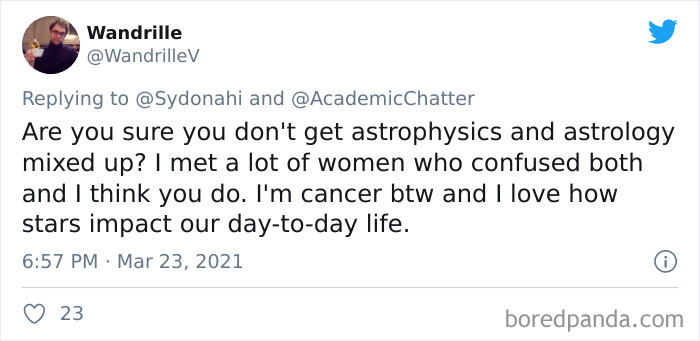
Image credits: WandrilleV
#2
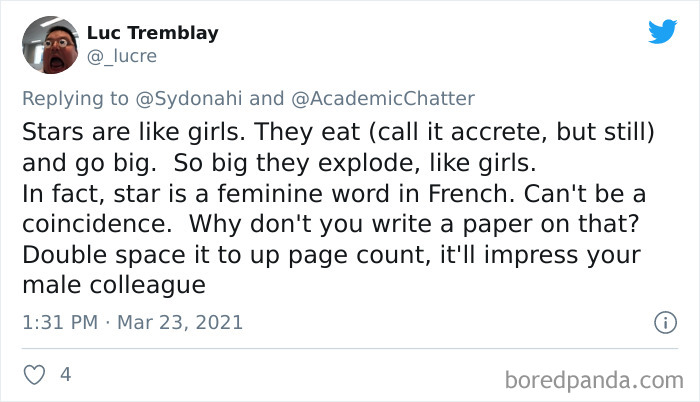
Image credits: _lucre
#3

Image credits: mostlykjeldsen
For those of you Pandas who absolutely love space but are scared of maths, Dr. Stevance pointed out that she was, too. She had two great pieces of advice for anyone who's seriously thinking about going into astrophysics. "Learn to code early and never tell yourself you're stupid. Maths and science are just hard. That's it. A big part of science is being wrong and figuring out how to fix things until they work—then you move on to the next problem and start again. It's really fun if you let go of the idea that you need to understand everything quickly and easily—in real life it doesn't work that way," she said that patience and diligence are huge virtues.
"I thought it would be fun to see what people do with mansplaining when they're told 'wrong answers only': will they go full mansplaining? Will they mansplain something else? Will they write a genuine answer that is 100 percent not mansplaining? In the end, I got a bit of everything it was really cool," Dr. Stevance told Bored Panda her motivation for starting the thread in the first place.
#4
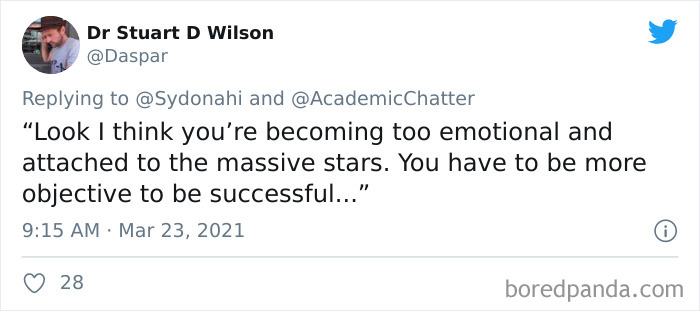
Image credits: Daspar
#5

Image credits: Inkstain_1982
#6
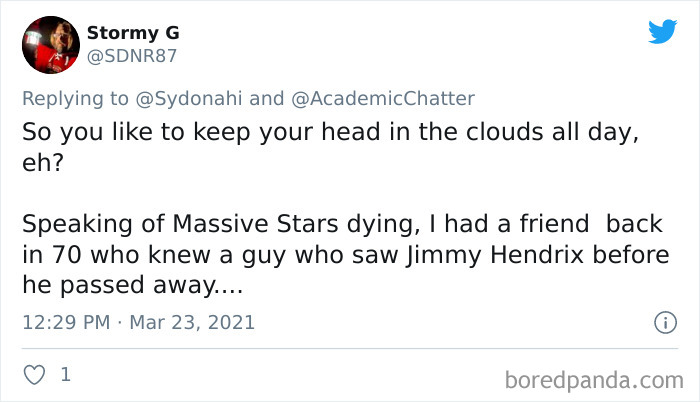
Image credits: SDNR87
The scientist believes that mansplaining is a product of gender roles. "On a statistical level, male-raised individuals assume they are more knowledgeable than women or gender minorities because that is the narrative that we have all been fed by society," she shared. "It's often just unconscious biases, not men literally thinking 'herp derp women are stupid.' That is also why it is so hard to combat."
Dr. Stevance pointed out that most people who mansplain believe that they're trying to help by explaining things and don't mean to be condescending. However, "they don't realize you can have the best of intentions and still feed into a system that sees women and femininity as 'less' competent/knowledgeable."
#7
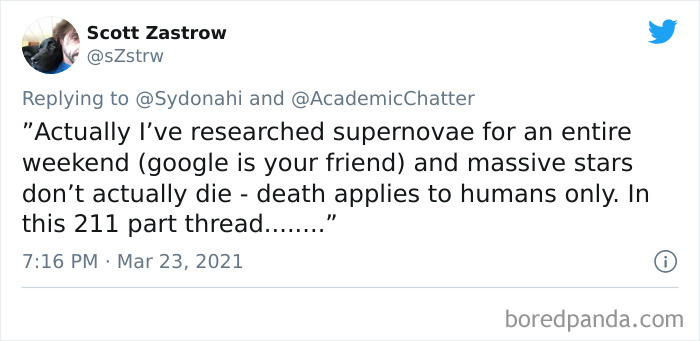
Image credits: sZstrw
#8
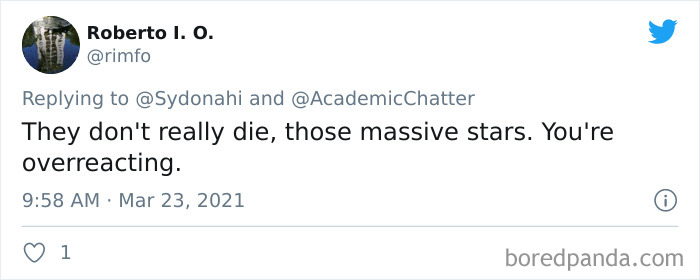
Image credits: rimfo
#9
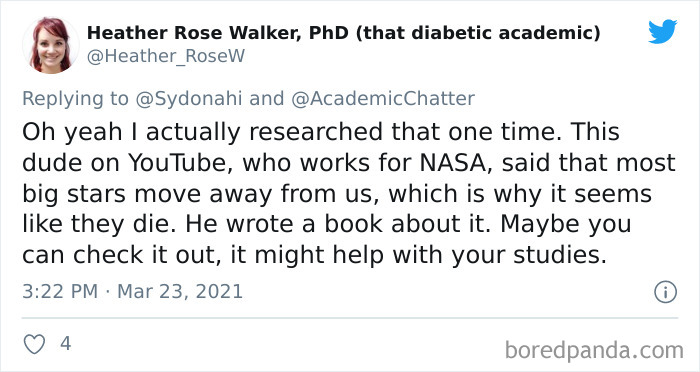
Image credits: Heather_RoseW
The astrophysicist has been extremely lucky. Even though she's had to deal with some mansplaining here and there, she's surrounded by "great people" and in a place with "a lot of gender diversity." She also gets to choose whom she works with. "Many women in STEM are not so lucky," she pointed out. "I don't think there is a best way to respond [to mansplaining], it depends on the individual. Mansplaining is a macro-phenomenon: on a large scale, there are clear patterns that emerge. But on an individual level you need to take into account the human you are interacting with and the situation you are in."
#10

Image credits: MarionJHolloway
#11
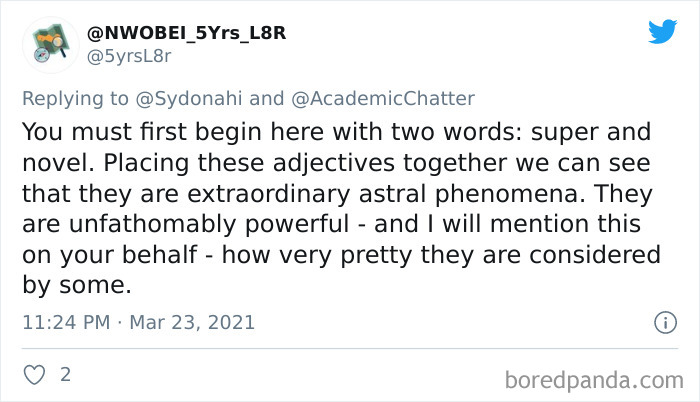
Image credits: 5yrsL8r
#12
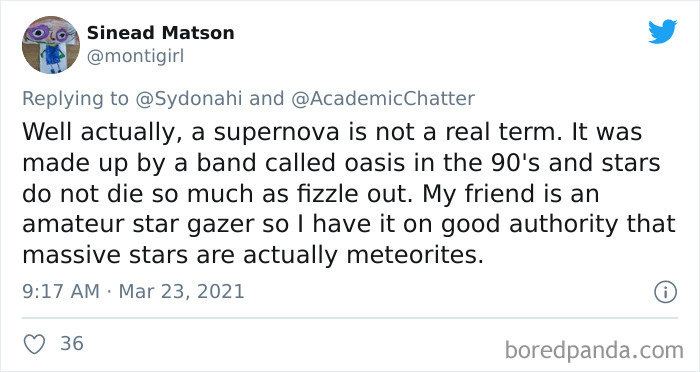
Image credits: montigirl
Dr. Stevance is a self-professed Carl Sagan fan, Derby supporter, and body art enthusiast. She is also a goth and one of her colleagues has called her “a crazy [but brilliant], yellow-haired space lady.” One thing’s for sure—despite all the maths, formulae, and mind-bending hard work that astrophysics requires, she knows how to live life to the fullest.
According to her bio on her website, she was originally born and raised in France. However, she moved to the United Kingdom to study Physics and Astronomy at the University of Sheffield.
#13
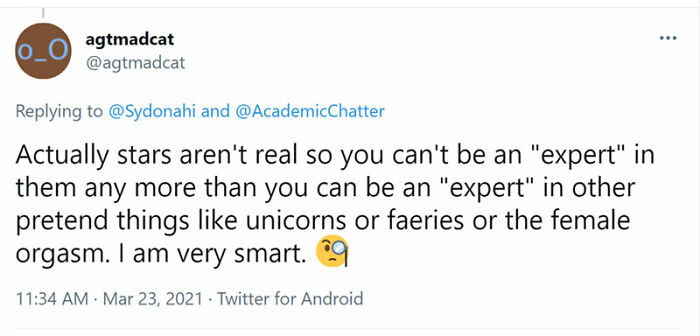
Image credits: agtamadcat
#14
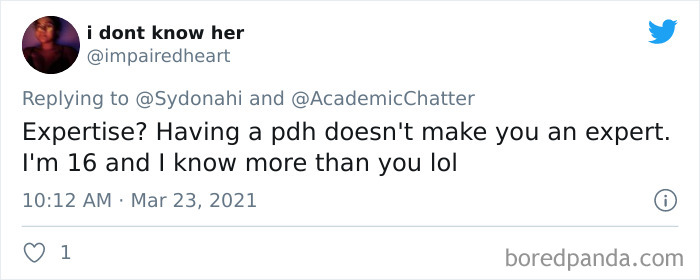
Image credits: impairedheart
#15
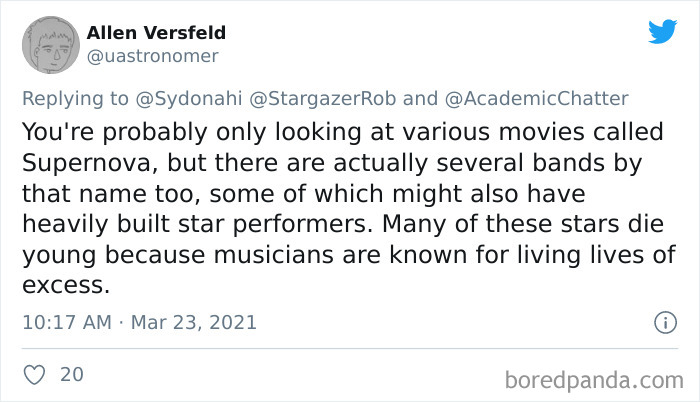
Image credits: uastronomer
“After working as a support astronomer at the Isaac Newton Group in La Palma for a year, I obtained my Masters of Physics in 2015. I subsequently started a PhD studying the 3D shape of Core Collapse Supernovae, and earned my title in Spring 2019. In July of that year, I joined the University of Auckland as a Research Fellow to research the evolution of massive stars to better understand how they die and produce Supernovae and Kilonovae,” Dr. Stevance shared.
#16
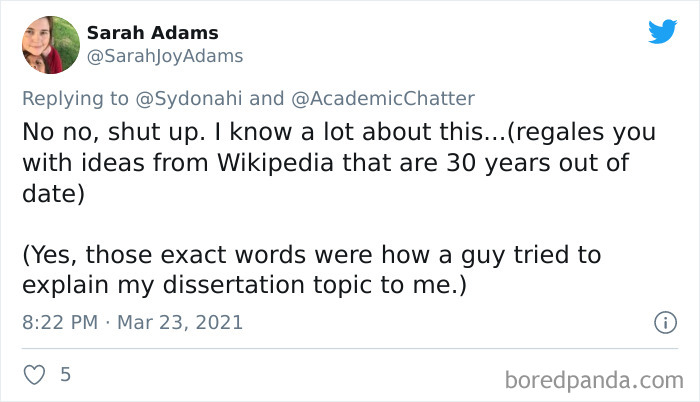
Image credits: SarahJoyAdams
#17

Image credits: ElizabethScrase
#18
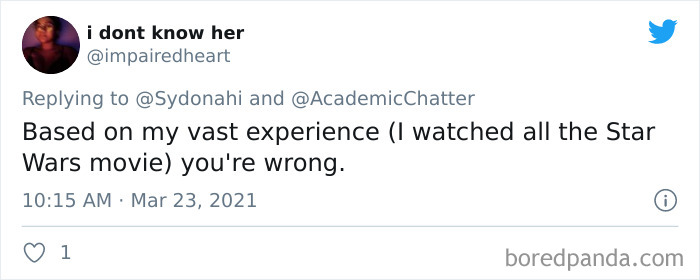
Image credits: impairedheart
Having started her public outreach work in 2016 while in the middle of her doctorate studies, she hasn’t yet stopped it and plans to keep going. Among the astrophysicist’s research interests are stellar evolution, massive stars, software development, machine learning, and even spectropolarimetry (which I proofread five times just to be sure and tried to pronounce thrice).
“I use modern technologies to better understand the lives and deaths of some of the most massive stars in the Universe,” she writes on her website. So if you’re an astrophysics enthusiast or professional, drop her a line via email or Twitter to have a chat.
#19

Image credits: antallan
#20

Image credits: vangiess
#21
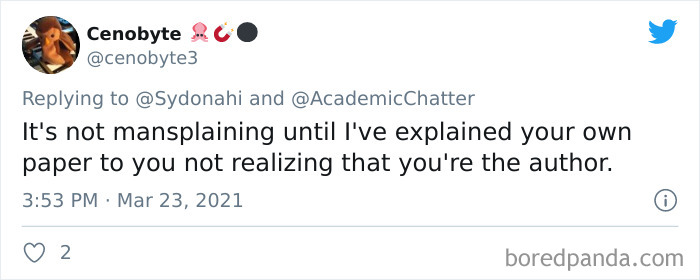
Image credits: cenobyte3
Despite the light tone in Dr. Stevance’s thread, she touched upon an important topic. Mansplaining is an issue that many professional women have to deal with in their daily lives. Bored Panda had recently spoken about this with Kim Goodwin who created this flowchart about whether something is mansplaining or not.
“Plenty of men are expert baby-burpers and diaper-wranglers, but lots of women will just assume they’re incompetent. Now imagine that happening in almost every domain of your life—and especially at work," Goodwin explained.
#22

Image credits: shenanigoon
#23
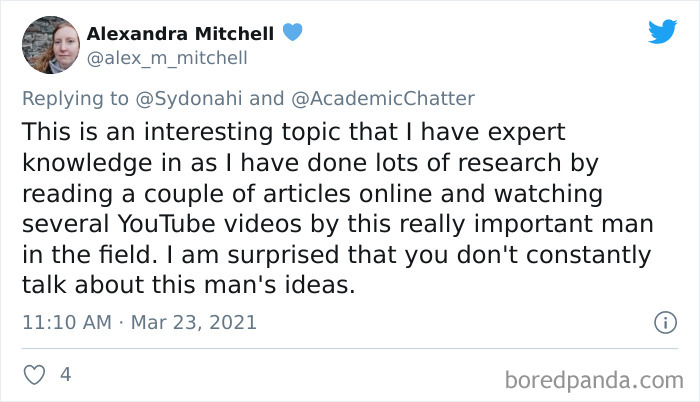
Image credits: alex_m_mitchell
#24
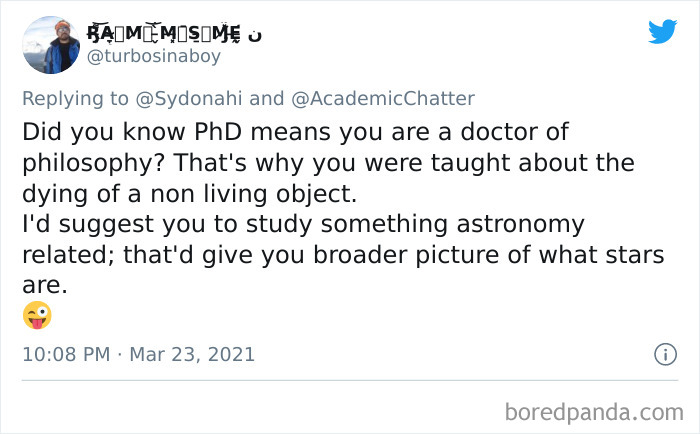
Image credits: turbosinaboy
“The problem is the conscious or unconscious assumption that the -splainee doesn’t know something. People without societal privilege are frequent targets, which is why the behavior gets labeled mansplaining (or sometimes white-splaining, since white women often do this to women of color, too),” she said.
#25

Image credits: ReluctantPotato
#26
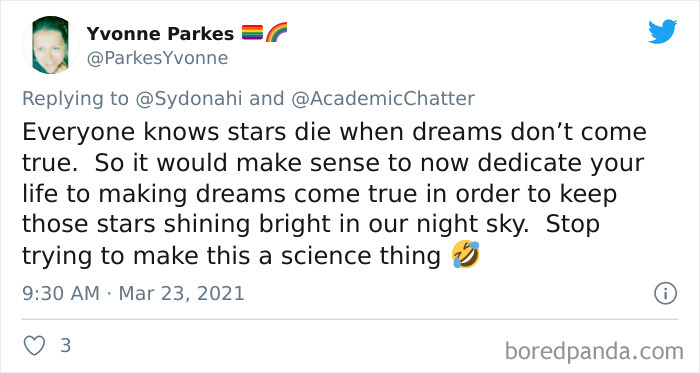
Image credits: ParkesYvonne
#27
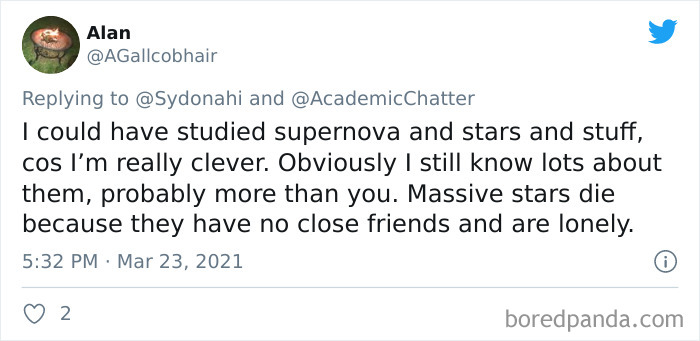
Image credits: AGallcobhair
Goodwin also doesn’t believe that the term ‘mansplaining’ is sexist or creates double standards. “Trying to police the term is attempting to deny that communication patterns are influenced by systemic sexism or other pervasive imbalances.”
#28
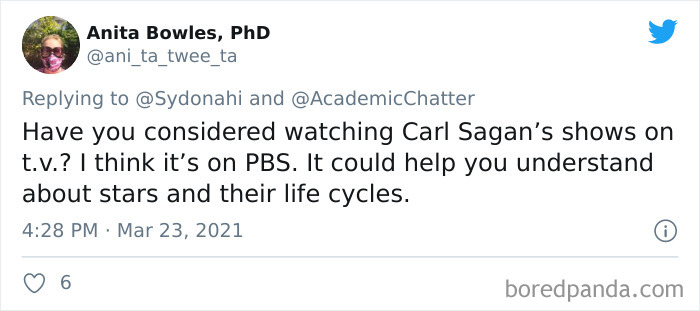
Image credits: ani_ta_twee_ta
#29
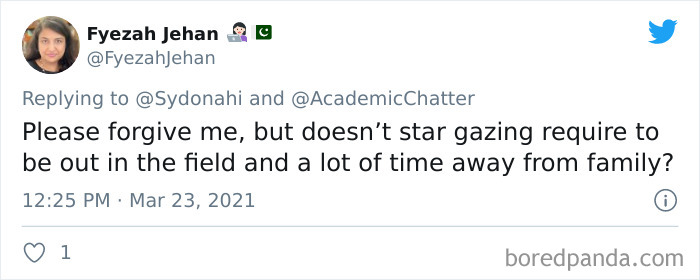
Image credits: FyezahJehan
#30

Image credits: Velo_Maniaq
#31
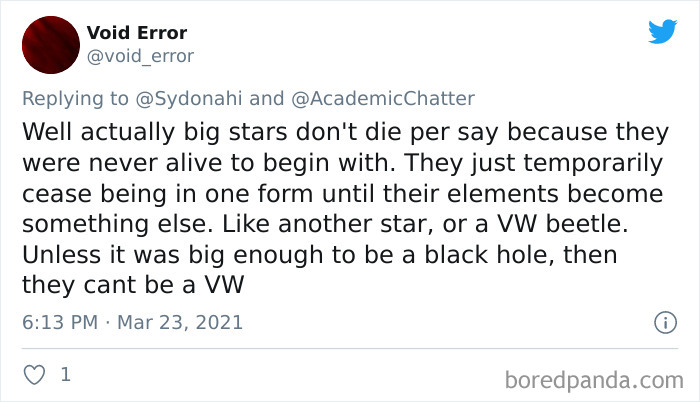
Image credits: void_error
#32
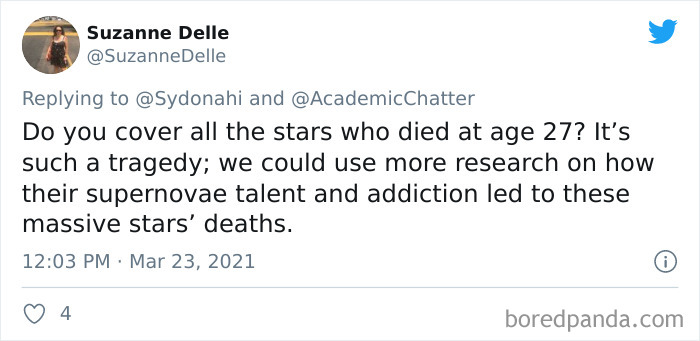
Image credits: SuzanneDelle
#33
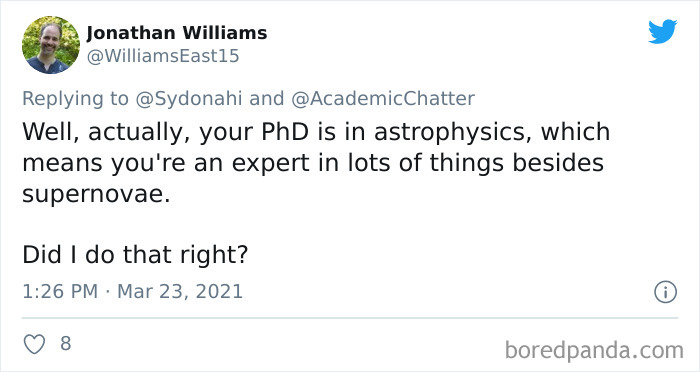
Image credits: WilliamsEast15
#34
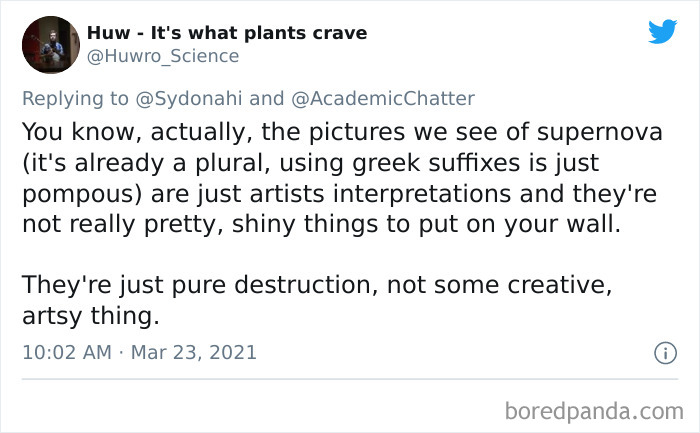
Image credits: Huwro_Science
#35
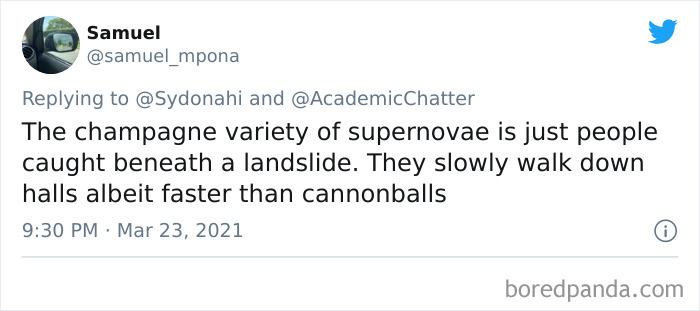
Image credits: samuel_mpona
#36
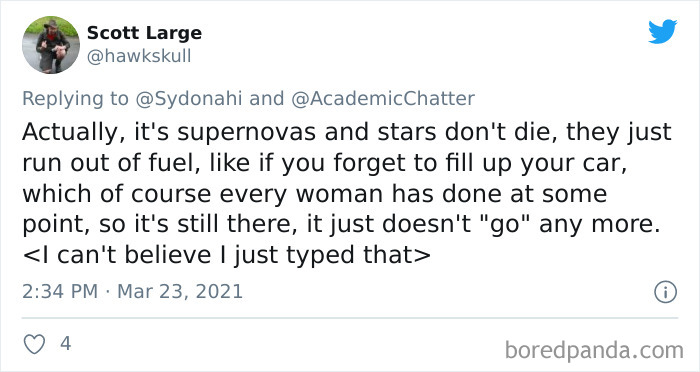
Image credits: hawkskull
#37

Image credits: Kaersutite
#38
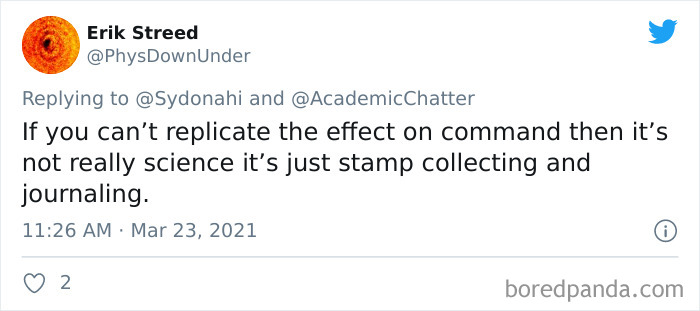
Image credits: PhysDownUnder
#39
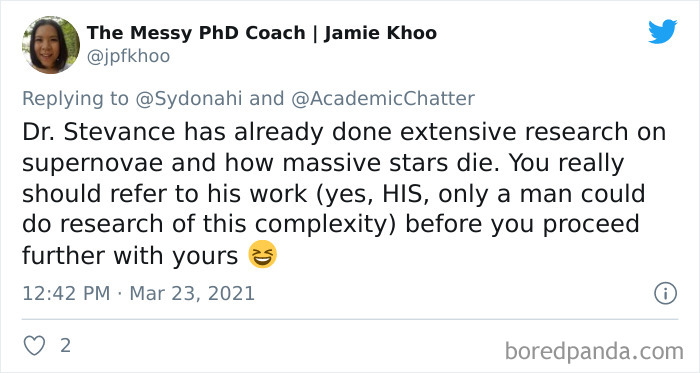
Image credits: jpfkhoo
#40

Image credits: john_plebeian
#41
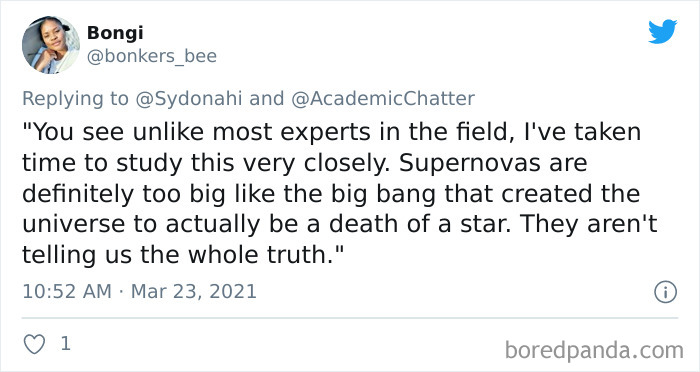
Image credits: bonkers_bee
#42

Image credits: jampisces
#43

Image credits: mitchelmodine
from Bored Panda https://bit.ly/31v2DQs
via Boredpanda
